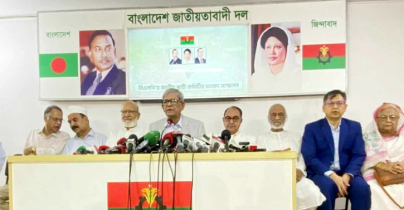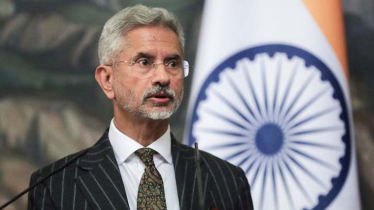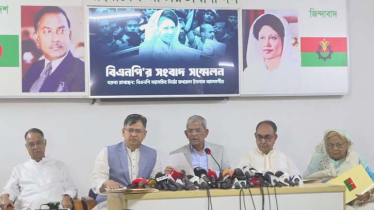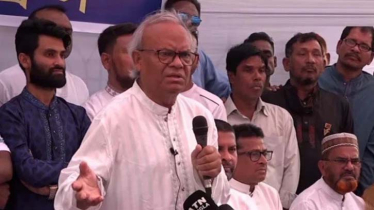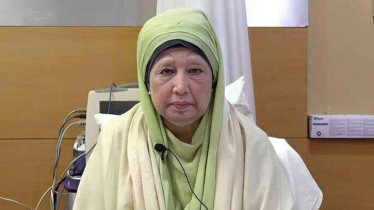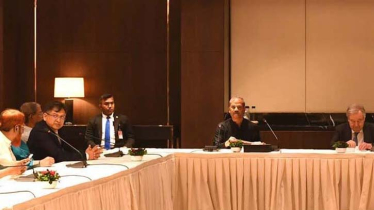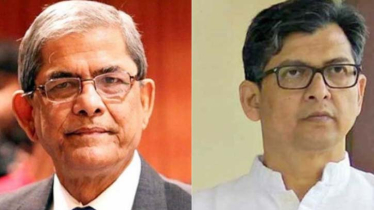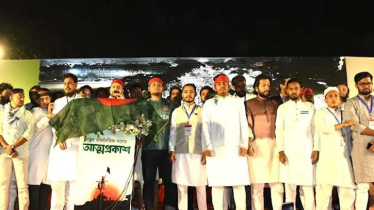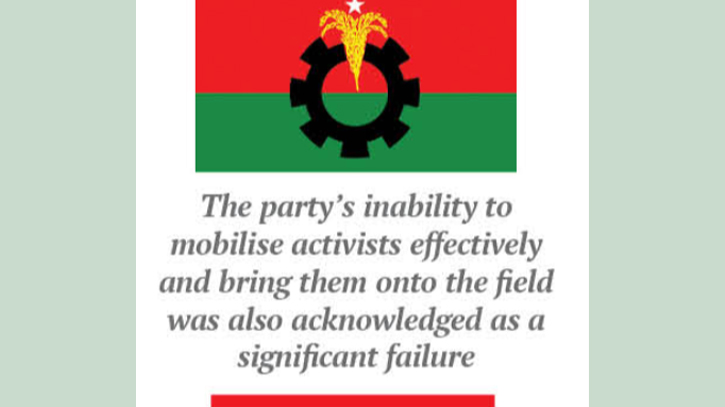
Photo : Messenger
The Bangladesh Nationalist Party (BNP) began the year on a relatively positive note, but unfortunately, the conclusion did not reflect the same optimism. As the year progressed, BNP leaders and activists experienced growing disappointment stemming from the inability to construct a substantial mass movement.
The BNP has urged the general public to withhold cooperation with the government by participating in a poll boycott. Concurrently, the party has advocated for a non-cooperation movement, a declaration made on December 20. However, uncertainties and reservations surround the execution of this initiative, as the party has faced challenges and setbacks in achieving success in certain programs in the recent past.
A sense of frustration has permeated the majority of party leaders and activists, who find themselves disheartened by police actions and the absence of senior leaders. Nevertheless, BNP leaders offer a distinct interpretation, asserting that the party has experienced increased unity under the leadership of Tariq Rahman in the absence of the ailing Chairperson, Khaleda Zia. Despite concerns and speculations that BNP might crumble post-boycott, such assumptions have proven incorrect. Furthermore, they vehemently deny any categorisation of the movement as a failure.
During discussions with leaders and activists at various levels of the party, this reporter sought answers to the question of what the BNP has accomplished in the past year. A prevailing sentiment emerged, with most asserting that the party has achieved unity under the leadership of Tariq Rahman. However, concerns were raised as they acknowledged shortcomings in other areas, indicating challenges and areas for improvement.
As an illustrative example, they pointed out that the party faltered in compelling the government to accede to their demands through a robust movement. The party's inability to mobilise activists effectively and bring them onto the field was also acknowledged as a significant failure. Following October 28, all party activities have been met with disappointment. Despite commanding substantial public support, the party has demonstrated a considerable shortcoming in constructing a widespread mass movement.
However, the central leaders of the party do not agree with such statements of root-level leaders and activists. They claim that the party is still moving in the right direction. BNP has refrained from participating in the elections as a fair election is not possible under the current government. They said that the international community is also aware of the matter.
BNP's Standing Committee member, Begum Selima Rahman, conveyed to The Daily Messenger that the party hasn't accomplished anything in the past year, a statement she believes is inaccurate. She highlighted that despite the government's persistent efforts, they have been unable to fracture the unity of the party.
Additionally, she emphasised that the party is presently consolidated under the guidance of the acting chairman. She highlighted the broader perspective that politics extends beyond the pursuit of power, asserting that BNP is advancing in a democratic manner. According to her, democratic countries and various organisations are extending their support to BNP due to its commitment to democratic principles.
It is noteworthy that despite being engaged in an anti-government movement, BNP commenced the year with considerable enthusiasm. The party gained prominence through a series of peaceful gatherings, even in the absence of the party chairperson and former prime minister, Khaleda Zia, who was granted a suspension of her sentence through a government executive order. Furthermore, during this period, acting chairman Tariq Rahman was overseas.
Several like-minded political parties, united in their call for the government's ouster, orchestrated street mobilisations through marches, sit-ins, mass processions, and road marches. Notably, Western diplomats, including the United States of America, actively supported the cause of free and fair elections in Bangladesh, aligning with the objectives of the party.
The United States has declared a visa policy and its implementation targeted at those who impede fair elections in Bangladesh. Subsequent to this announcement, anti-government groups, including the BNP, intensified their activities on the streets. Up until last October, the outcomes of BNP's movement and various diplomatic engagements appeared favorable for the party. However, since then, the situation has begun to shift.
Despite conducting these programs in a peaceful manner, the party and its allies initiated strike and blockade programs from the day following the clash with the police on October 28. The BNP and affiliated parties observed a 24-day blockade in 12 phases and a hartal for 5 days in 4 phases. However, these programs were observed with notable reluctance.
The party's hartal blockade program partially halted long-distance traffic, but traffic on internal routes remained normal. Despite the extensive police operation, the march of activists continued at the field level. Although most of the leaders of the party covered up the situation, the program was celebrated as much as possible, due to the efforts of the acting chairman in London.
Tariq Rahman maintained continuous communication and provided encouragement to the on-ground leaders and activists throughout the program. Contrary to the fear of the party disintegrating, the reality has shown the opposite. From senior leaders of the party to field-level leaders and activists, unity under the leadership of Tariq Rahman has been evident. This has resulted in strengthening Tariq Rahman's singular leadership within the party.
In this context, BNP's Central Executive Committee member and former Chhatra Dal president, Kazi Rawanakul Islam, conveyed to The Daily Messenger that the most significant achievement of BNP this year is the consolidation of unity within the party. Despite Khaleda Zia's absence, the party has achieved unity under the leadership of Acting Chairman Tariq Rahman, currently residing abroad. Additionally, BNP has successfully positioned itself as a party representing the people.
Messenger/Disha

